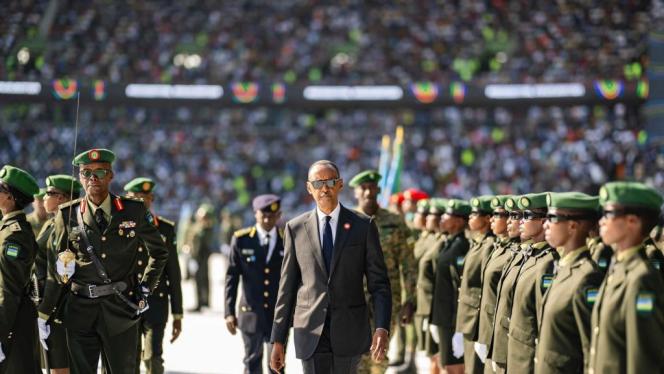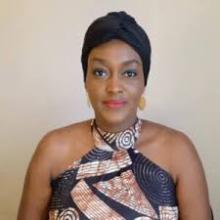Thursday 21 November 2024
Rwanda without the PR

On the global stage, Rwanda is the poster child for African development, celebrated for its post-genocide recovery and lauded as a beacon of economic success. The seemingly stable nation has won the admiration of many international actors despite a grim reality: a systematic pattern of human rights abuses, suppression of dissent, and exploitation of neighboring countries, particularly the Democratic Republic of the Congo.
Rwanda’s human rights situation has been deplorable, with human rights organizations reporting widespread repression of critics of the Rwandan government both in and outside the country, media censorship, and the use of torture. According to a recent Human Rights Watch report published in October 2024, torture is routinely employed against detainees, particularly those perceived as political threats to President Paul Kagame’s regime. The report reveals harrowing accounts of abuse, including beatings, electrocution, and mock executions.
Enforced disappearances have become a hallmark of Kagame’s authoritarian grip on power. These are not random acts of violence but a deliberate strategy of political repression aimed at creating a climate of fear, deterring political opposition, and maintaining control. The cases of those who responded to the call of opposition leader Victoire Ingabire Umuhoza to struggle for genuine democracy, respect for human rights, and the rule of law in Rwanda underscore this.
Journalists, YouTubers, and activists who dare to speak out against the regime have often found themselves arrested, exiled, or worse—dead. For example, journalist John Williams Ntwali, who had been investigating the presence of Rwandan troops in the DRC, was found dead under suspicious circumstances in early 2023. Ntwali’s death prompted an investigation by Forbidden Stories, an international network of journalists dedicated to continuing the work of silenced reporters. This investigation looked into patterns of repression in Rwanda, culminating in Rwanda Classified, a series of reports published in European media that exposed the troubling and hidden aspects of Kagame’s regime.
The political space in Rwanda is also virtually nonexistent, with opposition leaders imprisoned, exiled, or assassinated. In the 2024 elections, Kagame won an astounding 99 percent of the vote, after the opposition’s potential candidates were barred from running against him. This electoral farce further cemented Rwanda’s status as a closed political environment where genuine political competition is not allowed to flourish. Against that backdrop, Freedom House has consistently categorized Rwanda as “not free,” a country where political rights are restricted and civil liberty is curbed.
The United Nations has repeatedly accused Kagame’s government of supporting rebel groups such as M23, which has wreaked havoc in eastern Congo, displacing millions of people and fueling instability. The UN has further alleged that Rwanda benefits from the conflict in several ways, including the illicit extraction of valuable minerals like coltan, which is essential for manufacturing electronics, particularly electric vehicles.
Despite these glaring issues, Rwanda’s international reputation remains partially intact, bolstered by a sophisticated public relations campaign that highlights the mirage of economic success and apparent willingness of the Kagame regime to partner with international community and multinationals to meet their needs and interests. In doing so, its human rights violation and destructive role at home and in the region are disregarded.
For instance, Rwanda’s exploitative activities in the DRC have enabled it to become a major exporter of highly demanded minerals to the world. The country has even signed a memorandum of understanding on sustainable raw materials value chains with the European Union.
Furthermore, Rwanda has successfully positioned itself as a key player in addressing global security challenges. Today, it ranks fourth in personnel contributions to UN peacekeeping operations worldwide. For example, in Mozambique, Rwandan troops have been deployed to combat Islamist insurgencies. However, behind the peacekeeper facade, their presence is more about protecting economic interests, particularly those of French energy giant TotalEnergies, which has invested heavily in Mozambique’s liquified natural gas (LNG) projects. TotalEnergies has hired a Rwanda-linked security firm for $20 billion to safeguard its business.
Rwanda has formed partnerships with major sports organizations, including Arsenal, PSG, Bayern Munich, and the NBA’s Basketball Africa League, as part of its Visit Rwanda campaign. Formula 1 is reportedly considering a partnership with Rwanda. While these deals present Rwanda as forward-thinking, they also serve as “sportswashing,” diverting attention from the country’s serious human rights violations.
While Rwanda has tried to make itself indispensable to the international community, not all of its efforts have been successful. The country has marketed itself as a solution to the influx of migrants and asylum seekers entering Europe, most notably through its controversial agreement with the Conservative Party from the United Kingdom. However, the deal was scrapped by the Labour Party shortly after it won the July 2024 elections. Nonetheless, Kagame’s willingness to participate in such a controversial arrangement speaks to his regime’s desire to project Rwanda as a cooperative international actor, despite its domestic repression and abuses.
During an online webinar, Belgian politician, renowned journalist, and author Peter Verlinden pointed out that despite growing attention to Rwanda’s human rights abuses and regional exploitation, the country still enjoys significant support from the international community because of Western interests. However, it is clear that Rwanda is crossing a line with its involvement in the eastern DRC.
Jeffrey Smith, a pro-democracy campaigner and founder of Vanguard Africa, argues that Washington’s policies toward Rwanda remain largely unchanged. They rely on an outdated narrative that ignores the country’s authoritarianism. Smith suggests that these decisions stem from a lack of creativity and a limited understanding of regional dynamics.
Both Verlinden and Smith agree that there has been a recent shift in how the international community views Rwanda. This change is largely driven by the Kagame regime’s ongoing involvement in the conflict in eastern DRC, as well as by high-profile human rights cases like that of Paul Rusesabagina, a Rwandan Belgian human rights activist and US resident. In 2005, Rusesabagina received the Presidential Medal of Freedom, the highest civilian honor in the US, for his bravery during the 1994 genocide, during which he saved 1,200 people. Despite his heroism, he was kidnapped in 2020, taken to Rwanda, and sentenced to prison after a sham trial. His release in 2023, following US intervention, allowed him to reunite with his family in the US.
Another case contributing to this shift is that of Ms. Victoire Ingabire Umuhoza, a courageous politician who returned to Rwanda in 2010 from exile in the Netherlands to run for president. She was arrested and sentenced to 15 years in prison in a politically motivated trial. Her appeal to the African Court on Human and Peoples’ Rights cleared her, ruling that Rwanda had violated her rights to freedom of expression and adequate defense. Despite her release in 2018 after eight years in prison, including five in solitary confinement, she continues to be restricted in her political activities and is barred from leaving Rwanda to reunite with her family in Europe, effectively living in an “open-air prison.” Ingabire has consistently spoken out through op-eds and interviews, condemning Kagame’s regime for human rights abuses, the lack of rule of law, and flawed development policies.
The international community’s perception of Kagame’s regime is changing slowly. Peter Verlinden noted that countries like the US and the Netherlands have begun gradually reducing their financial aid to Rwanda, signaling growing discomfort with its authoritarian practices. While reduction in aid is a positive step, it remains insufficient to address Rwanda’s widespread human rights abuses fully. The core issue lies in the West’s tendency to prioritize stability and economic interests over human rights concerns.
Verlinden also noted that mass media often follows the political agenda of Western governments. That said, as an activist I perceived the release of the Rwanda Classified reports as a reflection of the shift in attitude toward Rwanda, although the impact of the reports may be limited by underlying dynamics. Although both the European Union and the United States have imposed sanctions on some Rwandan officials linked to the conflict in eastern DRC, Jeffrey Smith pointed out that these sanctions target lower-level military figures rather than top leaders, addressing the symptoms rather than the root causes of the problem.
Victoire Ingabire, the opposition leader in Rwanda, asserts that for Rwanda to truly evolve into a modern, competitive nation—one that is both envied and respected by its peers, and seen as a long-term, reliable partner in global security and trade—it must first embrace a democratic governance that guarantees stability in the African Great Lakes region. As an activist, I firmly believe that the Rwandan diaspora must continue to lead efforts in raising awareness about the human rights abuses under Paul Kagame’s regime. Initiatives like Ingabire Day, which is dedicated to remembering and telling the stories of victims and exposing ongoing violations, are vital for keeping pressure on the international community to reevaluate its stance on Rwanda.
Western governments must confront the truth and shift their policies, no longer turning a blind eye to Kagame’s violations in the name of stability. As many wise individuals have previously highlighted, in situations of injustice and oppression, neutrality is not an option, as it implicitly condones the actions of the oppressor and exacerbates the suffering of the victims. Therefore, in the case of Rwanda, Western governments must stand with the voices of the victims. It is time for a more honest engagement with Rwanda, one that upholds human dignity and champions true democratic governance. Only then can Rwanda and the region achieve lasting peace and prosperity.
This article was originally published on the Africa is a Country website. You can read it here.






